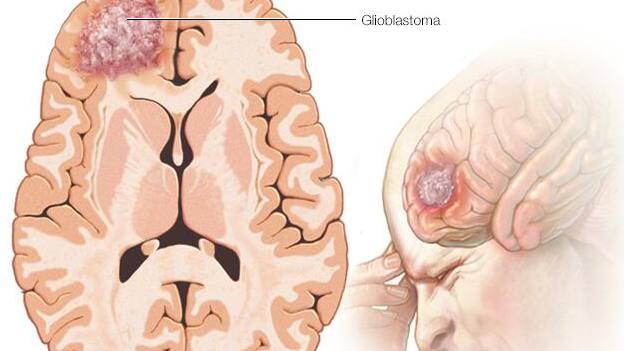Learn about meningioma and glioblastoma brain tumors

By Deb Balzer
A diagnosis of a brain tumor can be frightening. Of the more than 100 types of brain tumors, meningioma and glioblastoma are two of the most common.
Watch this "Mayo Clinic Minute" video to hear Wendy Sherman, M.D., a Mayo Clinic neuro-oncologist, explain the differences in these brain tumors and why research is crucial to moving toward a cure:
Meningioma
"The most common brain tumor is actually what's called a meningioma, which is a tumor that arises not in the brain itself, but from the lining that surrounds the brain, the meninges," says Dr. Sherman.
Meningiomas are slow-growing tumors. Surgery may be suggested based on size and location.
"Most meningiomas are benign, and after surgery, they may never regrow. Or if they do, it may take a very long time," she says.
Glioblastoma
Another type of brain tumor is cancerous and fast-growing.
"Glioblastoma is the most common type of malignant tumor in the brain," says Dr. Sherman.
After diagnosis, treatment usually starts with surgery. "The first step is to remove as much of it as you can," says Dr. Sherman.

Treatments may slow the growth of cancer, but there is no cure for glioblastoma.
"That is the reason why we are so dedicated to our research efforts to find innovative treatments for this and, eventually, a cure so that we can change the landscape," says Dr. Sherman.
Glioblastoma treatment
Dr. Sherman says different forms of therapy are being researched, including immunotherapies, vaccine therapies, targeted therapies and medications.
Surgery is often the first course of treatment. The goal is to remove as much of the brain tumor as possible without damaging surrounding areas of the brain. Radiation therapy, like proton beam therapy or X-ray, usually comes after surgery. The radiation kills any glioma cells that might remain after surgery. Radiation is often combined with chemotherapy.
Learn more
Learn more about meningioma and glioblastoma.
Find a meningioma or a glioblastoma clinical trial.
Join the Brain Tumor Support Group on Mayo Clinic Connect, an online community for patients and caregivers.
Also, read these articles:
- "Defying all odds and exploring a remarkable journey beyond diagnosis"
- "5 reasons brain tumors are still treated with radiation therapy"
- "Mayo Clinic expert describes 3 common brain tumors and their treatment"
- "Is a cancer clinical trial right for me?"
A version of this article was originally published on the Mayo Clinic News Network.
Related Posts

Drs. Vincent Rajkumar and Rafael Fonseca explain what smoldering multiple myeloma is and how treating it could potentially delay or prevent multiple myeloma.

Dr. Travis Grotz, a Mayo Clinic surgical oncologist, shares what people should know about the signs and symptoms of stomach cancer.

Mayo Clinic pancreatic cancer experts highlight the importance of early diagnosis and the role of artificial intelligence in transforming patient outcomes.
 Facebook
Facebook Messenger
Messenger Twitter
Twitter LinkedIn
LinkedIn Email
Email Print
Print